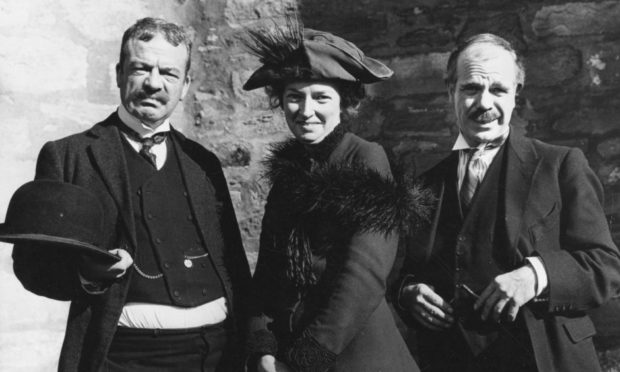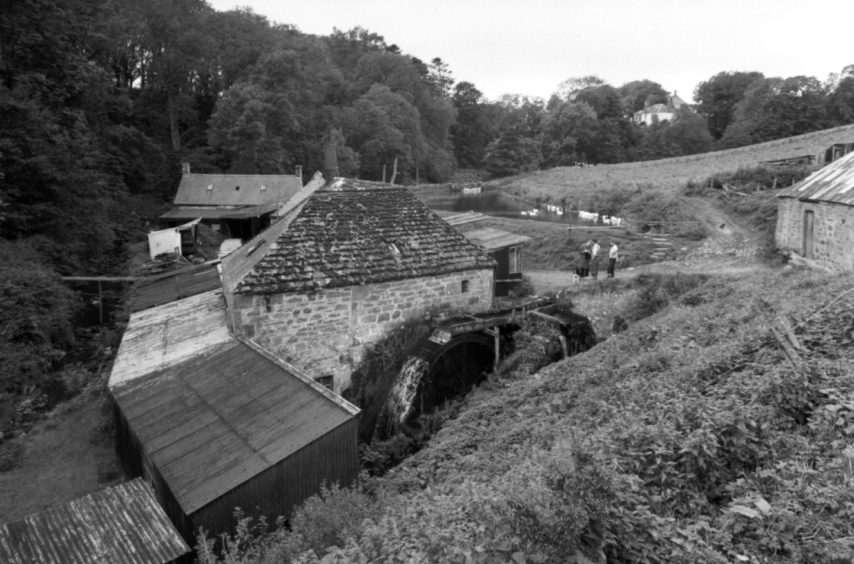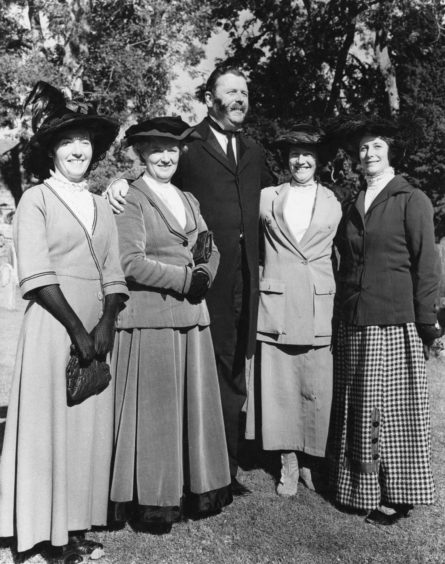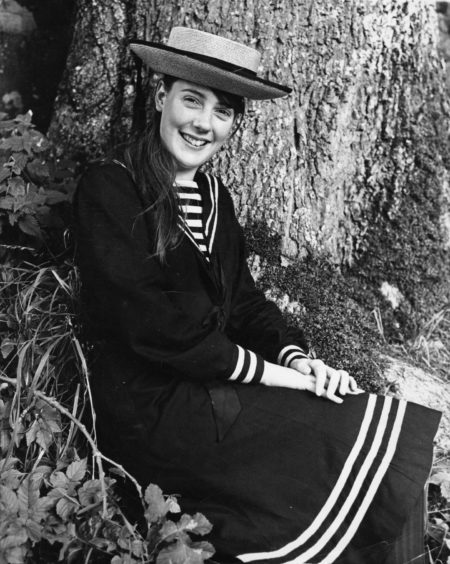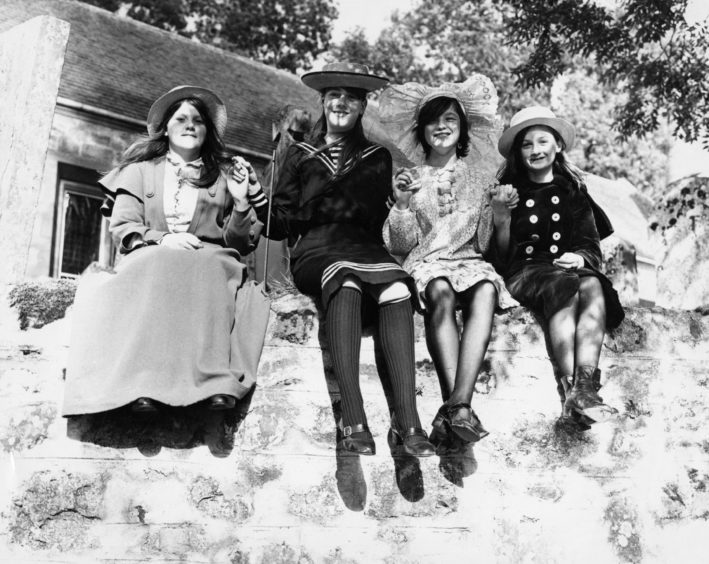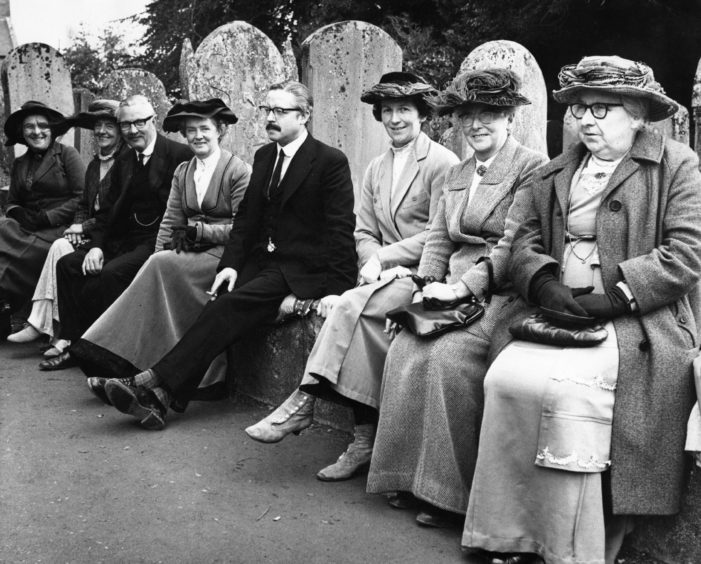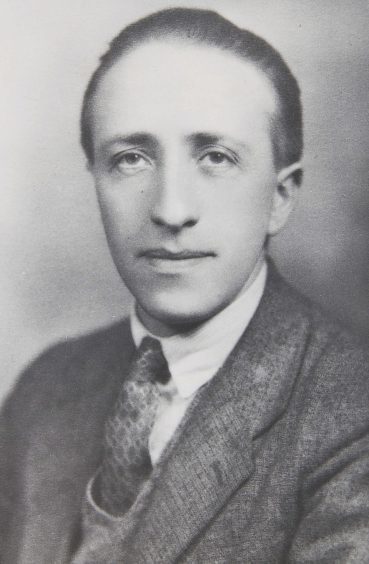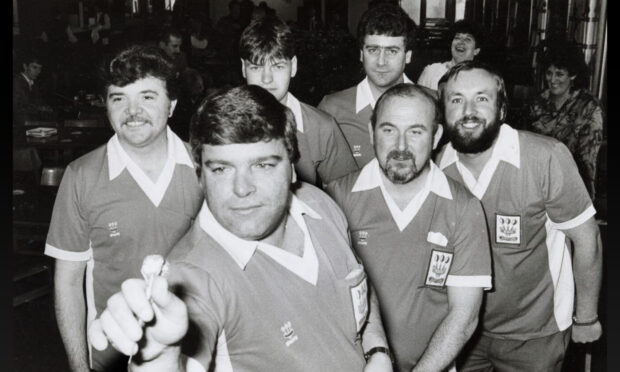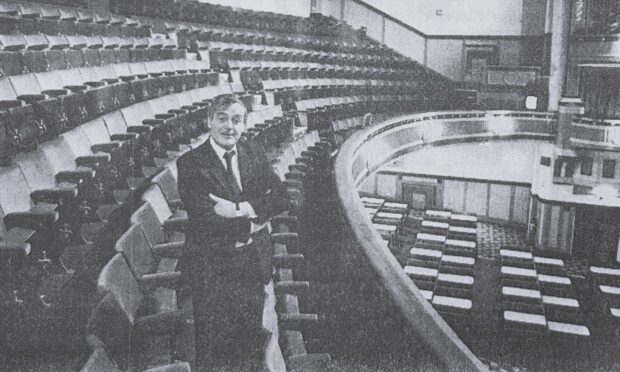It was a drama series which was filmed on location in the Mearns and still casts a spell over audiences some five decades later.
And it was directed by a Scottish woman, who has been acclaimed by BAFTA and honoured by the BFI, yet remains unheralded among most of her compatriots.
Moira Armstrong was an ideal choice to take charge of the adaptation – by Bill Craig – of Sunset Song, the classic novel by Lewis Grassic Gibbon, which is set in Aberdeenshire.
Born in Crieff in 1930, she had already served her dues on a number of programmes, including Z Cars and Dr Finlay’s Casebook, and subsequently earned acclaim and plaudits on influential TV series such as Testament of Youth.
A wonderful cast brought the book to our TV screens
She was bolstered in the task of bringing Sunset Song to life by a tremendous cast, including Edith MacArthur, Andrew Keir, Roddy McMillan, Paul Young and Anthony Valentine, while Vivien Heilbron excelled in the lead role of Chris Guthrie, the formidable protagonist who thrives in adversity as an evocative Everywoman.
The series was the first colour drama produced by BBC Scotland and it also contained the first nude scene, while tackling the book’s controversial themes.
And Armstrong and Heilbron’s contributions made it an unforgettable experience.
Armstrong has been a trailblazer in British television
The novel embraced the challenges faced by an intelligent young women in escaping a life of domestic drudgery and familial abuse in the early part of the 20th century.
And, in her own way, Ms Armstrong, who turned 90 last year, has also been a pioneering figure, whose credits encompass everything from Play for Today and The Onedin Line to Lark Rise to Candleford, Where the Heart Is, The Bill, Midsomer Murders and Marple, and who has never been tied to any particular genre.
But her impressive career very nearly didn’t happen. Her first acceptance letter from the BBC got lost in the post and it was her mother who took matters in hand.
Ms Armstrong recalled: “She was so incensed that I hadn’t heard from the BBC that she went to Portland Place to the appointments department and complained.
”They said they had actually sent me a letter saying would I come for an an interview.”
Mastering the Doric and bringing it to a wide audience
Despite all her varied work in the industry, it is hardly surprising that Ms Armstrong was enthralled by the challenge of doing justice to Grassic Gibbon’s masterpiece.
Oblivious to the difficulties at the time of filming on location – most programmes were confined to basic studio sets – she was in her element while shooting scenes at such well-known locations as Dunnottar Castle near Stonehaven.
The book doesn’t shirk from addressing themes such as incest, military desertion, sexual infidelity and the manner in which small communities were devastated by the impact of the First World War when so many young men perished across Europe.
But, as Ms Armstrong said: “It has got a very good narrative through it with the central character of Chris being the narrator.
”It is set in a part of Scotland which is not terribly well known outside of Scotland and it is where I grew up, so it was like going back to my roots.”
The critical acclaim testified to her success in bringing the venture to fruition.
A new film version had a hard act to follow
The power of the TV series proved difficult to transcend when Terrence Davies released his film version of Sunset Song, starring former model Agyness Deyn, Peter Mullan and Kevin Guthrie, in 2015.
It was well received in some quarters, and looked transcendent on the big screen, but many cinema goers felt it lacked the intensity of the BBC series.
Indeed, Ms Armstrong wrote to a national newspaper in advance of it being released and pointed out the profound impression which the 70s production had made.
She said: “Thank you for the excellent article by James Naughtie on Sunset Song. He is right to be apprehensive as to whether the film about to be released can capture, as he says, “a love song for a landscape and language”.
“However, the publicity for the film and the article imply that there have never been any attempts to dramatise the novel – not true.
“So successful was the six-part television serial made by BBC Scotland in 1970 [and broadcast in 1971] that it became a set text in Scottish schools, was shown on Masterpiece Theatre in America, and was repeated 10 years later as one of the most popular dramas to be transmitted.
“So, ‘the speak of the Mearns’ was appreciated even in America.”
There is no underestimating the popularity of the work, penned by Grassic Gibbon, who worked at the Aberdeen Journal before turning his hand to literature.
It is regularly voted Scotland’s favourite book in public polls, is acclaimed across the world, and remains the most evocative work ever written about the Mearns.
First Minister, Nicola Sturgeon, is among those who have spoken evocatively about how the novel has made a significant impression on her life.
And anybody who watched television half a century ago will recall Vivien Heilbron in a performance which remains the defining portrayal of one of the great fictional figures.
Vivien talked about the global aspect of Sunset Song
As Chris Guthrie, one of the strongest female characters in the history of literature, Heilbron was tough and she was tender; feisty and flirtatious; intelligent and intuitive.
She was confronted with tragedy and faced the worst kind of travails within her own household where there was no escape from her domineering father.
Yet while her family and friends were dragged away from the fictional parish of Kinraddie to endure their own privations in the trenches of the First World War, Chris stuck to her philosophy that, whatever else changes, the land will endure.
To that extent, she wasn’t just a powerful woman.
She was Mother Nature herself.
Heilbron told me in an interview from 2014: “I went from playing an aristocratic German countess to appearing as this Scottish peasant girl, so it was a big contrast, but it turned into one of those productions where everything came together.
Chris is this giant mass of contradictions
“I was from Glasgow, so I had to learn to speak the [Doric] language, because it was so important, but some of the cast were from the north-east and helped me in every way.
“It’s a long time since I played Chris [she returned in the second and third parts of the trilogy, Cloud Howe and Grey Granite], but she was such a fascinating character.
“Chris has to be this big mass of contradictions: she goes through all these different emotions of love, loss, anger, humour, darkness and rebirth and we see her develop from a young woman into adulthood.”
All the world is a stage for Vivien Heilbron
She continued: “The book and their heroine deserve their place in history. There is no better description of the way all these young men from small villages went off to fight in a war, which most of them didn’t understand, and from which so many never returned.
“That is one of the reasons why it carries so much resonance and has endured.”
As a Fellow of the Shakespeare Institute at Stratford, Heilbron has travelled all over the world. And she has heard praise for Sunset Song wherever people are tilling the land.
As she added: “There is a universality about Sunset Song which strikes a chord in so many different places. I can remember talking to somebody in Greece many years ago and he was raving about the book and I asked him why.
“He said: ‘It tells the story of peasants the world over’ and I knew exactly what he meant.
“What was wonderful was that Grassic Gibbon was very specific about the countryside, the people and the language of the Mearns, but his message wasn’t remotely parochial.
“On the contrary, there was a timeless quality to what he wrote and that is why he is remembered and held in such high regard. He was only 33 when he died [in 1935].
“But he was responsible for creating a masterpiece which will live forever.”
Heilbron’s own copy of the novel is understandably dog-eared after decades of her dipping in and out of the pages in hotel rooms, on railway carriages and elsewhere.
But she shares Chris Guthrie’s redoubtable spirit and won’t let go once she is on a mission, especially if it provides an opportunity to help youngsters learn their craft.
It may be a long time since she was studying at at the London Academy of Music and Dramatic Art. But nobody knows better than her that all the world is a stage!
And that message has definitely been reinforced by Moira Armstrong.
